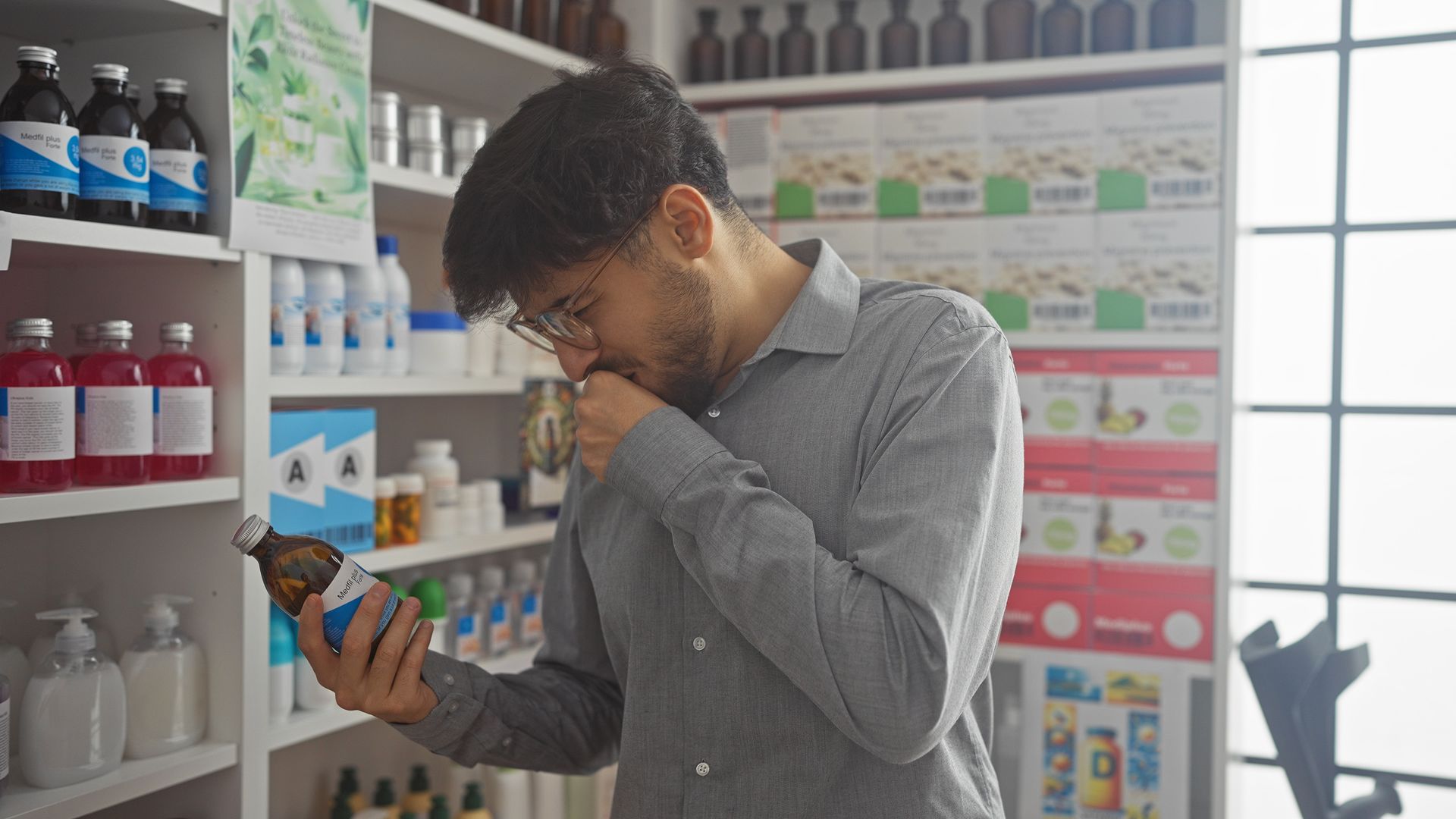What to Know About Over-the-Counter Cold and Flu Medications in the Summer

Many people associate cold and flu symptoms with the winter season. But summer colds are very real, and they can feel even more miserable when you’re dealing with high temperatures, dry air conditioning or busy vacation schedules.
Why Do We Get Colds in the Summer?
Contrary to popular belief, cold viruses don’t disappear when winter ends. In fact, some types, like enteroviruses and adenoviruses, are more active during the summer months. Air conditioned buildings, shared travel spaces, crowded camps and sudden shifts between indoor and outdoor temperatures can all contribute to summer colds. Symptoms may include:
- Sore throat
- Congestion
- Sneezing
- Cough
- Fatigue
- Low-grade fever
While symptoms are usually milder than the flu or COVID-19, they can linger for days or even weeks, and over-the-counter medications may offer relief from symptoms. But not all meds are created equal, especially when it’s hot outside.
Decongestants and the Summer Heat
One of the most common cold symptoms is nasal congestion. Many people turn to OTC decongestants like pseudoephedrine (Sudafed) or phenylephrine (found in many combination cold products). These work by shrinking swollen nasal blood vessels to improve airflow.
However, decongestants can:
- Raise blood pressure
- Cause dry mouth or dehydration
- Make you feel jittery or wired
In the summer, when the body is already working hard to stay cool and hydrated, these side effects can be amplified. If you're active, outdoors or already slightly dehydrated from the heat, use decongestants cautiously. Always drink plenty of water and avoid taking them before intense physical activity.
Antihistamines: Helpful or Harmful?
Antihistamines like diphenhydramine (Benadryl) or loratadine (Claritin) are often used for allergy relief, but they’re also common in cold and flu combination products because they help with sneezing and runny noses.
Older “first-generation” antihistamines tend to cause drowsiness and dry mouth, both of which can be exacerbated by the heat. If you’re driving, operating machinery or spending time in the sun, this could be dangerous or unpleasant.
“Second-generation” antihistamines (like cetirizine or fexofenadine) are usually better tolerated and less sedating. Check the ingredient label before taking anything and ask your pharmacist if you're unsure which type is best for you.
Cough Medications and Drowsiness
OTC cough suppressants like dextromethorphan and expectorants like guaifenesin are often included in multi-symptom cold medications. Dextromethorphan helps quiet a persistent cough, while guaifenesin helps thin mucus so it’s easier to expel.
Some cough meds are combined with sedating antihistamines or alcohol-based syrups, which may:
- Make you feel sleepy or sluggish
- Contribute to dehydration
- Increase sensitivity to sunlight
If you’re taking a cough syrup during the day or while outside, opt for non-drowsy formulas and be mindful of your fluid intake.
Pain Relievers and Fever Reducers
Medications like acetaminophen (Tylenol) and ibuprofen (Advil, Motrin) can relieve sore throats, body aches, and fevers. They’re generally safe to take in the summer, but remember:
- Ibuprofen is a nonsteroidal anti-inflammatory drug (NSAID) that can irritate the stomach and affect kidney function, especially if you’re not well hydrated.
- Acetaminophen is easier on the stomach but should be used with care to avoid liver strain, particularly if you’re also consuming alcohol on vacation or at events.
Stick to recommended dosages and avoid combining multiple products that contain the same active ingredient.
Avoid Overmedicating with Multi-Symptom Products
Many people turn to combination cold and flu products for convenience, but they often contain four or more active ingredients, some of which you may not need.
For example, if you only have a sore throat and runny nose, you probably don’t need a product with a cough suppressant, decongestant, and fever reducer. Taking unnecessary ingredients increases the risk of side effects and drug interactions.
When possible, treat only the symptoms you’re actually experiencing. You can ask your pharmacist to help you pick the best single-ingredient options.
Travel and Storage Tips
Medications can degrade in high heat. If you’re traveling or storing cold meds in a car or bag, be sure to:
- Keep them in a cool, dry place
- Avoid leaving them in a hot car
- Check expiration dates and packaging before use
If you're heading out of town, bring a few basics with you. Having your preferred cold relief options on hand can save you from scrambling to find an open pharmacy late at night in an unfamiliar place.
When to Call Your Pharmacist or Doctor
While most summer colds clear up on their own within a week or two, you should seek help if:
- Your symptoms last longer than 10–14 days
- You develop a high fever or chills
- You experience chest pain or difficulty breathing
- You're unsure how a medication might interact with others you're taking
Pharmacists are an excellent resource for guidance on OTC medications and can help you avoid unnecessary or unsafe combinations.
A Pharmacy That’s Here for You Year-Round in Bellaire, Conroe, Houston, Sugar Land and Dickinson
At St. Hope Pharmacy, we understand that cold and flu symptoms don’t wait for winter, and neither should your relief. Whether you need help choosing the right medication, managing side effects or preparing for summer travel, our knowledgeable team is here to support you.
Contact us here on our website for personalized recommendations, refill support and trusted advice that helps you feel better, no matter the season.


